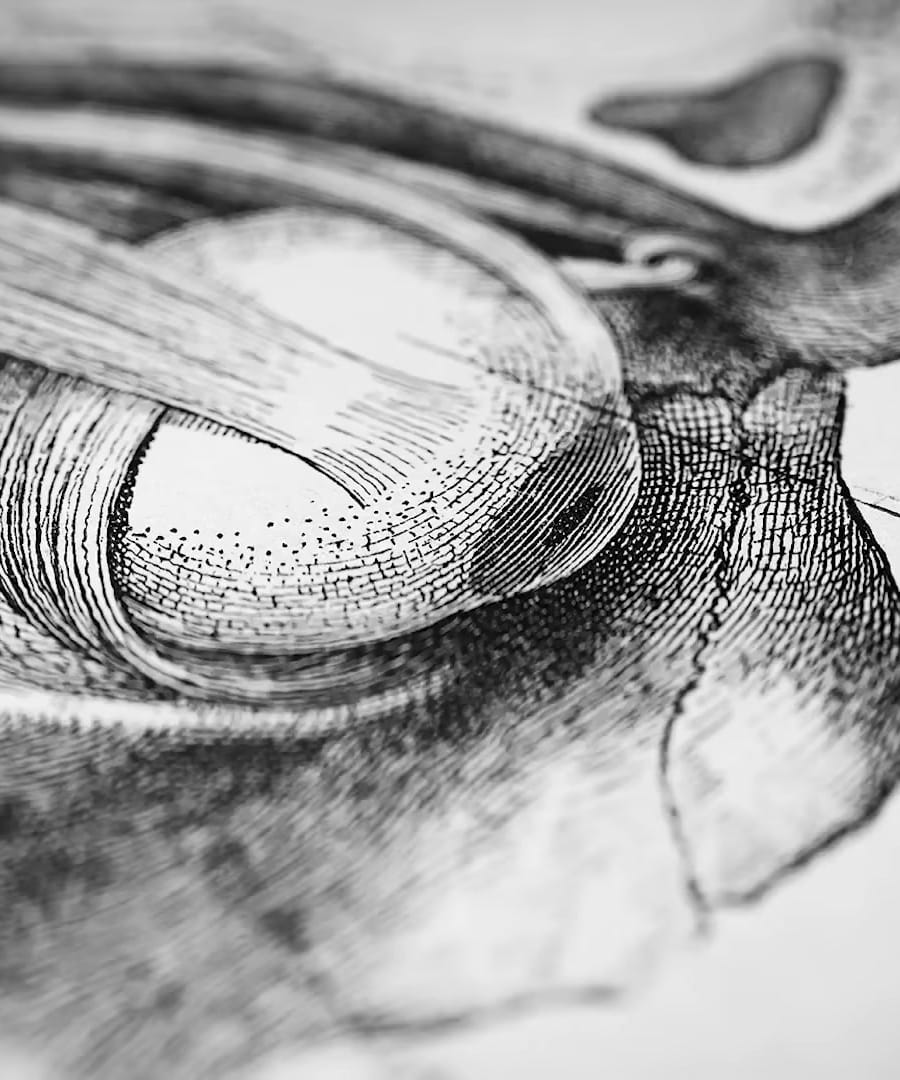Caffeine
Sources:
Caffeine is widely consumed by adults, and it's estimated that about 90% of adults worldwide consume a caffeinated beverage every day. This widespread use makes caffeine the most popular drug on the planet. Its primary appeal lies in its ability to reduce feelings of sleepiness and fatigue, enhance alertness, and increase both cognitive energy and physical energy. Caffeine blocks adenosine receptors, which are linked to sleepiness; as caffeine's effect wears off, adenosine can then bind to these receptors, causing the familiar caffeine crash 1.
Caffeine has multiple effects on the brain. It increases release of dopamine and acetylcholine in the forebrain, aiding with clarity of thought, rule switching, and engagement in various contexts. Caffeine also acts as a strong reinforcer, increasing our liking of particular foods, drinks, and even the company we keep when consuming them. This reinforcement can significantly influence our taste preferences and daily routines 2.
Moreover, caffeine can have neuroprotective effects due to its impact on neuromodulators like dopamine, and large scale analyses show that caffeine intake is inversely related to depression, suggesting it may have antidepressive effects. These effects could be both direct and indirect, as caffeine increases motivation and could subsequently improve engagement in work and social interactions 3.
Regarding motivation and focus, caffeine increases the number and efficacy of dopamine receptors, reinforcing motivation and drive. It is recommended to consume caffeine early in the day to avoid disrupting sleep architecture. Caffeine not only makes one feel more alert by decreasing adenosine, which builds up during wakefulness, but also increases adrenaline release, impacting the sympathetic nervous system 4.
Lastly, besides being a stimulant that enhances alertness and reduces fatigue, caffeine also narrows our visual window, causing a state of physiological arousal that can be leveraged as a motivator 5.
When consuming caffeine, moderation is key, and it is advisable not to drink it too late in the day to ensure a good night's sleep without disrupting the quality of sleep 6.
RELATED QUESTIONSCaffeine overdose
Sources:
Caffeine overdose, while not directly discussed in the referenced clips, can be a serious condition. Typically, an overdose of caffeine can cause symptoms like jitteriness, nervousness, increased heart rate, digestive issues, and in severe cases, may lead to heart palpitations or more significant cardiovascular problems. Various factors such as body weight, individual tolerance, and the amount of caffeine consumed, play roles in how a person might be affected by an overdose.
In clip
chunk_49683, explains that caffeine increases autonomic arousal and biases the brain and body towards action, which leads to increased impulsivity and can affect aggression. This level of autonomic arousal from too much caffeine might also contribute to some of the symptoms associated with caffeine overdose.In clip
chunk_48968, remarks on the neuroprotective benefits of caffeine and its ability to enhance focus, but also notes that it can hinder divergent thinking when overused—indicating that excessive caffeine can negatively affect certain cognitive functions.Lastly, when referring to addiction in clip
chunk_132442, the discussion revolves around the idea of different drugs and behaviors having varying levels of "addictive liability" and acknowledges that while caffeine causes tolerance, it does not have a particularly high addictive liability, especially when compared to substances like cocaine or opioids.Thus, while the exact details of caffeine overdose aren't detailed, the information suggests that caffeinated substances should be used responsibly to avoid impairing mental functions or risking overdose symptoms. Always consult with a healthcare provider if you're concerned about the impacts of caffeine on your health or if you've experienced symptoms of an overdose.
RELATED QUESTIONSWhat are the safe consumption limits for caffeine?
Sources:
In determining the safe consumption limits for caffeine, provides guidance based on body weight and individual sensitivity. Generally, a range of 1 to 3 milligrams of caffeine per kilogram of body weight is recommended per sitting. So, for a person weighing 100 kilograms, a safe amount could be 100 to 300 milligrams of caffeine in a single dose. However, responses to caffeine vary, thus starting with a lower end of the 1 to 3 milligram per kilogram range is advisable, especially for those not accustomed to regular caffeine intake 1.
Concerns regarding excessive caffeine intake include potential anxiety, electrolyte depletion due to its diuretic nature, and cardiovascular effects from prolonged high consumption. It's important to be aware of not just the caffeine from coffee, but also other sources like energy drinks, teas, and sodas, as some products can contain up to 400 to 600 milligrams per serving, or even more 2.
also warns about taking caffeine later in the day, as it can disrupt sleep architecture, affecting sleep quality even if a person can fall asleep without difficulty. Consuming caffeine at least 8 to 12 hours before sleep is optimal to avoid impacting the restorative slow-wave sleep cycle crucial for mental and physical health 3.
For optimal mental and physical performance, he also suggests avoiding sudden caffeine intake on important days if you're not regularly consuming it, as it can lead to negative effects on focus and thermoregulation. Those who are sensitive to caffeine or not accustomed to it might even experience anxiety with a small amount of 25 to 50 milligrams 4.
Overall, understanding individual tolerance and consulting with a healthcare professional is crucial for safe caffeine consumption.
RELATED QUESTIONSWhat happens if I exceed safe caffeine limits?
Sources:
Exceeding safe caffeine limits can lead to a variety of negative effects, some of which are mentioned by . Drinking too much caffeine, especially amounts that significantly surpass personal tolerance levels, can cause heightened levels of anxiety and can deplete electrolytes due to caffeine's diuretic properties 1. This might lead to increases in irritability and potentially headaches when you're not consuming the usual amounts of caffeine you're accustomed to.
Additionally, a single pronounced increase in caffeine intake can lead to a temporary boost of energy; however, the following day often comes with a crash. This includes feeling lethargic and not as well overall 2. The crash relates to the modulation of dopamine and adenosine receptors, which are affected by the abrupt change in caffeine levels. advises against continually consuming elevated levels of caffeine, as many people do, to avoid setting a new, higher baseline just to feel normal.
also shares personal insights on how high caffeine and supplement intake enhanced his workout and cognitive performance in the short term. Still, he later experienced diminished energy and enthusiasm for these activities, an effect that could be seen as a form of psychological, if not physical, dependence 3.
It is essential to recognize individual sensitivity and keep in mind that specific responses can vary. Consulting with a medical professional may be appropriate if you experience negative effects or you're consuming high amounts of caffeine regularly.
RELATED QUESTIONSWhat to do if overdose with caffeine?
In the event of a caffeine overdose, does not provide specific steps to take, but understanding that a caffeine overdose can be serious is critical. Symptoms can include severe anxiety, palpitations, dizziness, insomnia, and digestive discomfort. If someone suspects they are experiencing a caffeine overdose, seeking medical attention as soon as possible is important. In a medical setting, professionals can provide the appropriate care, which could include activated charcoal administration or other interventions to manage the symptoms.
For safety, it's essential to avoid reaching this point by knowing your tolerance and consuming caffeine within recommended limits. The FDA recommends a maximum daily caffeine intake of 400 milligrams for most adults, which is roughly the amount in four or five cups of coffee. Individual tolerance varies, though, so some may experience side effects with less caffeine.
Please note, if you or someone you know is experiencing severe symptoms from caffeine overdose, contact emergency services or a healthcare provider immediately. The information provided here does not substitute for professional medical advice, diagnosis, or treatment.
RELATED QUESTIONSIntermittment fasting
Sources:
Intermittent fasting involves cycling between periods of eating and fasting. It's a dietary pattern that has garnered interest due to its potential health benefits. Here's what has said about intermittent fasting:
- Health Benefits: Studies have shown improvements in liver enzymes, insulin sensitivity, and other health parameters through restricting the feeding window to 4-12 hours in a 24-hour cycle 1.
- Gut Microbiome: Intermittent fasting can improve the gut microbiome, assisting with conditions like irritable bowel syndrome and colitis by impacting clock genes and the mucosal lining 2.
- Caloric Restriction: While intermittent fasting can support weight loss, it's important to understand that total caloric intake still matters. Reducing meal frequency can simply be a convenient way to prevent excessive calorie intake 3.
- Hormone Health: For healthy individuals maintaining calorie balance, intermittent fasting likely won't have negative effects on hormone health and might improve parameters like growth hormone levels 4.
- Feeding Window: The ideal intermittent fasting schedule suggested involves avoiding food for at least an hour after waking and for 2-3 hours before bedtime. An 8-hour feeding window, such as from noon to 8 PM, allows for meals within social norms while benefiting from fasting 5.
It's crucial to consult with a healthcare provider for personalized guidance before starting an intermittent fasting regimen, as individual health statuses can impact how one should approach fasting.
RELATED QUESTIONSCan you provide insights from experts on intermittent fasting?
Sources:
Various experts have shared insights on intermittent fasting in discussions with and on the . Below are some notable points made by these experts:
-
David Sinclair: Recommends skipping one meal a day, either breakfast or dinner, to extend the fasting window by leveraging the natural fasting period during sleep. It's less about what you eat and more about when you eat, based on metabolic similarities between mice and humans. He personalizes his approach by skipping breakfast and staying hydrated, making the first few weeks the most challenging 1.
-
Jeff Cavaliere: Stresses the importance of consistent eating habits that fit one's lifestyle and goals. He recommends finding balance and acknowledges the usefulness of intermittent fasting in addressing issues like portion control for grazers 2.
-
Satchin Panda: His research, cited by , indicates that restricting the feeding window to 4-12 hours a day can lead to health improvements such as better liver enzymes and insulin sensitivity. The timing of intake is also essential, with calories consumed in a limited window typically leading to better metabolic health compared to spreading the same amount of food throughout the day 3.
-
General Consensus: The common thread is that while the type and quality of food are important, the timing of eating can significantly affect health parameters. Each person may require a personalized approach that aligns with their daily routine, health condition, and ability to maintain consistency over time.
For an in-depth understanding, practical tips, and to explore more expert opinions, please refer to the episodes and clips mentioned above.
RELATED QUESTIONS-
Light and circadian rithm
Sources:
has shared various insights regarding light and its impact on circadian rhythms:
-
Light as the Main Regulator: Light, especially sunlight, is emphasized as the most powerful tool for setting our central circadian clock, the suprachiasmatic nucleus. The melanopsin cells in our eyes are specifically sensitive to light and are the primary means for setting this clock 1.
-
Morning Light: Exposure to lots of light early in the day is crucial for triggering daytime signals and alertness. If it's overcast or not bright outside, staying outside longer or using bright indoor lights can compensate. This helps set the circadian rhythms effectively 2.
-
Non-Visual Effects of Light: Beyond vision, light influences many body functions like circadian rhythm, sleep patterns, mood, and metabolism. This impact is primarily regulated through light-detecting neurons in the eyes 3.
-
Direct Effects of Light on Mood and Learning: Dr. Samer Hattar, featured on the , has highlighted research suggesting that light exposure can directly affect mood and learning abilities, independent of its effects on circadian rhythms 4.
-
Eating and Light Exposure: Regular meal times and consistent exposure to light-dark cycles are important for maintaining a coherent circadian system. Aligning meal times with the body's circadian clock can lead to improved eating behavior and contribute to weight management 5.
-
Practical Tips: For optimal circadian rhythm management, advises viewing light at sunrise and sunset, bright light exposure during the day, and minimizing light exposure at night. Using dim or red lights at night can prevent circadian disruption 6.
These points highlight that timing and quality of light are essential for maintaining healthy circadian rhythms, which play a vital role in overall health and daily functioning.
RELATED QUESTIONS-
Digestion
Sources:
has discussed various aspects of digestion in the context of the . The following are some highlighted insights:
-
Cholesterol Absorption and Digestion: Cholesterol is vital for cell membranes, hormones, and digestion. Dietary cholesterol largely gets excreted and not absorbed due to the body's regulatory mechanisms involving gut cells and transporters 1.
-
Gut Neurons and Digestion: Neurons in the digestive tract respond to food mechanics and chemistry. Neuropod cells in the gut are tuned to the digested contents like amino acids, sugars, and fatty acids 2.
-
Digestive Enzymes: Digestive enzymes can be sought through supplements or naturally in foods such as papaya and pineapple, which help in the digestion of macronutrients 3.
-
Circadian Rhythms and Eating Habits: Consistency in eating habits can tune our liver and other body clocks, reinforcing the importance of aligning meal timings with our circadian rhythms for better digestion and overall health 4.
-
Microbiota Diversity Along the Digestive Tract: Different sections of the digestive tract host distinct microbial communities, which contribute to a wide range of functions from initial digestion in the saliva to complex fermentations in the colon 5.
-
Gut-Brain Circuit: The gut and brain communicate bidirectionally. The entire digestive tract, including neurons in the intestines, impacts one's feelings and responses to foods and social interactions 6.
-
Microbiota Gradients and Mucus Layer: The gut features gradients like PH and nutrients that affect microbiota. The mucus layer plays a critical role in sustaining certain microbial species and affects the overall microbiome landscape 7.
-
Gut Sensing Mechanisms: The digestive system relays information regarding mechanical pressures (fullness) and chemical statuses along the digestive tract to the brain, influencing eating behavior 8.
Each of these topics captures how digestion encompasses not just the mechanical breakdown of food but also intricate interactions with the gut microbiota, nutrient absorption, hormonal signals, and even the body's internal timing systems.
RELATED QUESTIONS-
Can you provide tips for improving digestive health?
Sources:
To improve digestive health, suggests the following tips based on the knowledge discussed in the :
-
Increase Microbiota Diversity: Focus on increasing microbiota diversity in your gut, which is linked to better overall health. Lack of diversity, known as dysbiosis, can have negative effects on the body. Including fermented foods in your diet regularly can help increase this diversity 1.
-
Consider Betaine HCL Pepsin: If you have challenges with digestion, exploring supplements like betaine HCL pepsin might be beneficial for creating a positive environment in the gut. However, if your digestion feels healthy, such interventions may not be necessary 1.
-
Maintain a Healthy Microbiome: A healthy gut microbiome is critical for good brain and overall health. The microbiome can be positively influenced by the ingestion of high-quality non-processed foods that contain prebiotic fiber and probiotics without going to excessive levels 2.
-
Manage Stress: Chronic stress can disrupt the gut microbiome, impacting digestion and overall health. Finding effective stress management techniques is integral to maintaining a healthy digestive system 2.
-
Pay Attention to Your Gut-Brain Connection: Recognize that your brain influences your digestive functions, and your gut chemistry, in turn, affects brain function. This bidirectional communication means that emotional states can impact digestion and vice versa 3.
These tips are actionable and can be incorporated into daily routines to support a robust digestive system. It's always recommended to consult healthcare professionals before making significant changes to your diet or starting supplements.
RELATED QUESTIONS-
Caffeine
- RELATED QUESTIONS
Caffeine overdose
- RELATED QUESTIONS
What are the safe consumption limits for caffeine?
- RELATED QUESTIONS
What happens if I exceed safe caffeine limits?
- RELATED QUESTIONS
What to do if overdose with caffeine?
- RELATED QUESTIONS
Intermittment fasting
- RELATED QUESTIONS
Can you provide insights from experts on intermittent fasting?
- RELATED QUESTIONS
Light and circadian rithm
- RELATED QUESTIONS
Digestion
- RELATED QUESTIONS
Can you provide tips for improving digestive health?
- RELATED QUESTIONS



































